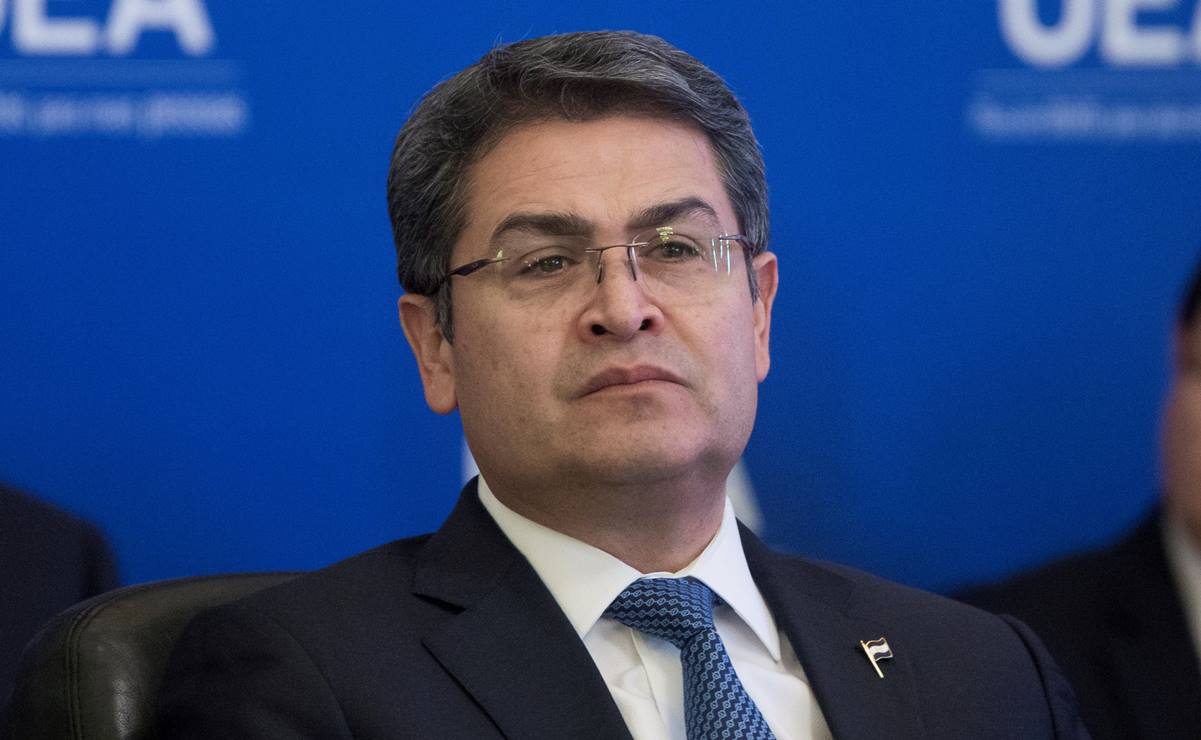RIO DE JANEIRO, BRAZIL – The US Attorney’s Office for the Southern District of New York claims that alleged drug trafficker Geovanny Fuentes Ramírez partnered with Juan Orlando Hernández in 2013, when he was a presidential candidate, and that together they planned to send “as much cocaine as possible” to the United States.
Honduran President Juan Orlando Hernández helped smuggle tons of cocaine into the United States, US Attorney Jacob Gutwillig said Tuesday, March 9th, in opening arguments in the federal trial of alleged drug trafficker Geovanny Fuentes in New York.

The US Attorney’s Office began the trial against the alleged Honduran drug trafficker yesterday, claiming that he collaborated for years with the country’s current president, and describing Honduras as a “narco-state”. “The defendant was part of the Honduran narco-state (…) The president shielded him,” said Gutwillig.
According to prosecutors, Fuentes Ramírez operated a massive cocaine distribution business through violence and his connections to the police, the army and the political class, “including the current president of Honduras.”
In its opening statement, the Attorney General’s Office claimed that the alleged trafficker partnered with Hernandez in 2013, when he was a presidential candidate, and that together they planned to send “the largest possible amount of cocaine to the United States.”
Prosecutors had already advanced alleged links between Fuentes Ramirez and the Honduran leader in earlier documents submitted, but on Tuesday they made it clear that this link will be a key element in their case.
“The defendant was a key player in the Honduran narco-state,” said a representative of the US Attorney’s Office for the Southern District of New York, who said that during the trial evidence will be presented of “secret meetings” that the alleged trafficker and the Honduran president held in 2013 and 2014.
According to Gutwillig, a man present at those meetings, an accountant identified as Jose Sanchez, who worked for a rice company through which Fuentes laundered money, will tell the jury “the shock, the fear he felt when he saw the defendant sit down with the president.” In one of those meetings, according to prosecutors, Hernandez allegedly declared his intention to “shove drugs up the gringos’ noses,” referring to an alleged willingness to send large quantities of cocaine to the United States.
One kilo of cocaine yields 8,000 individual doses and sells for US$30,000 in New York, the prosecutor said. The defendant’s laboratory produced “hundreds of kilos a month” and in collusion with the Honduran police and armed forces and politicians “moved it freely” across the country heading north.
According to them, the Honduran president received kickbacks from Fuentes Ramirez and access to his cocaine lab and, in exchange, promised him protection and cooperation. Specifically, prosecutor Gutwillig said that the drug trafficker paid Hernandez US$25,000, and that this bribe made him “untouchable”.
Defense attorney Eylan Schulman attempted to discredit the accountant’s potential testimony in his opening arguments. “Supposedly US$25,000 is all it takes to bribe a president,” he said. The accountant “has a lot to gain and little to lose” from his testimony because he expects to be granted asylum in the United States in return, he said.
The defense also told the jury that it should not believe the testimony that will be given by “one of the worst murderers on the face of the Earth,” Leonel Rivera, former leader of the Los Cachiros Honduran cartel, who killed 78 people, tried to kill 15 others and is imprisoned in the United States for drug trafficking.
“The (US) government agreed to make a deal with this devil (…) He should never be believed,” said Schulman, who argued in defense of the Hernandez government’s role in fighting drug trafficking.
So far, Hernandez has consistently denied any involvement, something he reiterated on Monday through Twitter, in a string of messages in which he also issued a warning to Washington.
The Honduran president assured that he will maintain the “international alliance in the fight against drug trafficking” until the end of his term, but warned that if drug traffickers” using lies as a magic tool to gain benefits from the US for giving false testimonies, the international alliance would collapse with Honduras and later with several countries.”
Juan Orlando Hernández has been a close ally of the United States since 2014, first under President Barack Obama and then from 2017 until January this year under Donald Trump.
His brother, Juan Antonio “Tony” Hernández, who according to the United States is also involved in this drug trafficking case, was convicted in October 2019 in the US on drug and arms trafficking charges. His sentencing, deferred several times, is scheduled for March 23rd. He may be sentenced to life imprisonment as a maximum penalty.
Geovanny Fuentes Ramirez, 50, was arrested a year ago in Miami and has pleaded not guilty to charges of cocaine trafficking and illegal weapons possession.
Prosecutors claim that Tony was the intermediary between Fuentes and the president of Honduras.
The first witness in the trial was US Drug Enforcement Administration (DEA) agent Brian Fairbanks, who confirmed to the jury that he found Juan Orlando Hernández’s email address and cell phone number on the defendant’s cell phone.
The prosecution showed the jury photos of Fuentes’ brother and son with President Hernandez found on the defendant’s phone, as well as photos of several weapons found on the icloud of one of Fuentes’ sons. Among them, an automatic rifle gifted to the president with the inscription “JOH, president of the Republic” above the trigger.
In his opening argument, the defendant’s defense sought to discredit the witnesses the prosecution plans to call, assuring that among them there are several criminals who only seek to be favored by the US authorities.
During Tony Hernandez’s trial in New York, witnesses also said that former Honduran President Porfirio Lobo (2010-2014) had received kickbacks from drug traffickers in exchange for protection. Lobo’s son, Fabio, was sentenced to 24 years in prison for drug trafficking in New York in 2017.
Source: infobae

